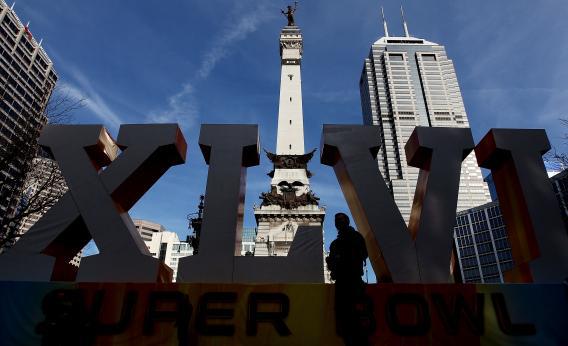Here are this week’s top must-read stories from #MuckReads, ProPublica’s ongoing collection of the best watchdog journalism. Anyone can contribute by tweeting a link to a story and just including the hashtag #MuckReads or by sending an email to MuckReads@ProPublica.org. The best submissions are selected by ProPublica’s editors and reporters and then featured at @ProPublica.
Super Bowl Lands on Taxpayers’ Backs as Indianapolis Stadium Deal Sours, Bloomberg
As the market turned sour, taxpayers in central Indiana dug deep to foot the bill for the stadium where the Super Bowl will be played. Taxes have increased on hotels, restaurants, and rental cars; meanwhile, the Colts financed part of their contribution to the stadium through government insurers, and they pay only $250,000 a year to use the stadium. And the Super Bowl? One consultant says it has a negligible effect.
Contributed by @BloombergNews
Quietly, U.S. Moves to Block Lawsuits by Military Families, the Atlantic
A 1946 law protects the U.S. government from medical malpractice suits “arising out of the combatant activities of the military or naval forces, or the Coast Guard, during time of war.” However, federal lawyers are now quietly trying to expand the government’s immunity, making it difficult for current and former members of the military to bring their medical grievances to trial.
Contributed by @TheAtlantic
FDA Staffers Sue Agency Over Surveillance of Personal Email, Washington Post
After a group of FDA employees warned Congress about agency approval of risky medical devices, the FDA secretly monitored their personal e-mail—an act the group says eventually contributed to harassment or dismissal. The whistle-blowing group worked in an office reviewing devices for cancer screening and other purposes.
Contributed by @Jake_Bernstein
Failure To Bring Border-Crossing Fugitives to Justice a National Problem, Chicago Tribune
An analysis of nearly 10,000 international fugitive leads has revealed a nationwide failure to extradite criminal suspects, even when their location is known. High extradition costs, diplomatic and political conflicts, and miscommunication have all contributed to problem, with only a “fraction” of the fugitives abroad brought back to the U.S. to stand trial.
Contributed by @brianboyer
Brown Ordered Firing of Regulator Who Took Hard Line on Oil Firms, Los Angeles Times
After a top regulator refused to authorize more lenient oil-drilling laws, California Gov. Jerry Brown had him fired. The method in dispute, underground injection, is a particularly risky form of oil extraction, but is also—Brown’s administration argues—a source of jobs in California’s struggling economy.
Contributed by @ashleypowers
Did the Stimulus Do Anything for Transparency? Governing
Whatever the ultimate economic impact of the stimulus, one result is clear: increased government transparency, on both state and federal levels, that’s released an unprecedented level of data. Many see this transparent recovery as a blueprint for the future of open government.
Contributed by @tinatrenker
These stories and many more can be found at ProPublica. You can also subscribe to a daily #MuckReads email or follow ProPublica on Twitter. Reader submissions are key to making #MuckReads a success—please contribute!
